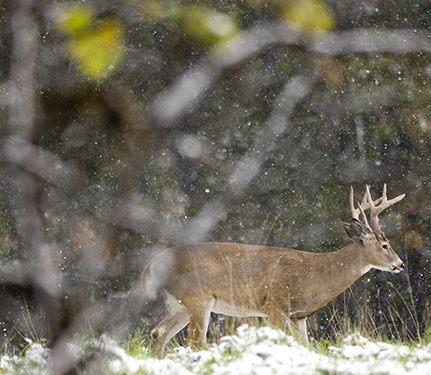Michigan DNR reports Benzie County’s first TB-positive deer
A 4-year-old doe harvested in Benzie County, Michigan, during the 2023 deer hunting season has tested positive for bovine tuberculosis. This is the first bTB-positive wild deer from that county.
Bovine tuberculosis is an infectious, zoonotic disease affecting both humans and animals. The disease is primarily spread through respiratory secretions when infected animals expose uninfected animals through nose-to-nose contact or contaminate shared feed and water.
Bovine TB is self-sustaining in deer in Alcona, Alpena, Montmorency, Oscoda and Presque Isle counties in Michigan’s northeast Lower Peninsula. Though most cases of the disease are found in these counties, it is likely at very low levels in the surrounding area and is occasionally detected. The first case was found in Alcona County in 1975, with a second positive identified in 1994. Since then, over 350,000 wild deer have been tested for bovine TB in Michigan. There have been 1,017 infected deer detected to date.
“Bovine TB develops slowly, and most positive deer submitted by hunters appear healthy,” said Michigan Department of Natural Resources Wildlife Health Section supervisor Mitch Marcus.
Infection typically starts in lymph nodes in the head and can take years to progress to lesions in the lungs and chest cavity. Less than 38% of infected deer show visible signs of disease in the chest cavity.
“That’s why submitting heads for bTB testing is so important. Wildlife Health staff can safely look at lymph nodes, where the disease is most likely to show up first,” Marcus added.
The DNR recommends that hunters do not consume animals infected with bovine TB. Hunters also are reminded to use caution when field-dressing or processing a deer. This includes practices such as wearing rubber gloves and washing hands with soap and warm water after handling the carcass. Hunters concerned about coming in contact with an infected deer should talk to their personal physician about health screening for TB exposure.
Information on disease testing options for 2024 deer hunting seasons will be available later this year.
Contact: Emily Sewell, 231-340-1821





